
1. Dans nos bureaux, à Jérusalem
18 février 2026
Entre-deux semestres, chassé-croisé pour les assistants. Victoria, Pauline et Fanny restent pour le second semestre, rejointes par deux nouvelles assistantes : Solène Ditte et Ombeline Duhesme. Solène, spécialiste du Physiologos, travaille sur les animaux dans la Bible. Elle décrit leurs fonctions, qu’elles soient matérielles, symboliques ou poétiques à l’intérieur du texte biblique, ainsi que leur […]

2. « Aux seuils des Écritures »
18 février 2026
Vers des introductions à tous les livres bibliques Depuis longtemps nous avions le projet d’enregistrer une brève introduction à l’intention du public cultivé pour chaque livre biblique. Ce carême nous donne l’occasion de tenter quelque chose pour la Genèse, l’Évangile selon saint Matthieu et l’Apocalypse. Ces trois livres permettront de faire entrer nos lecteurs dans […]

3. Chez nos amis et collaborateurs
18 février 2026
Le 26 mars : lancement de la collection « Bible et mystique » avec les Éditions du Carmel Tous les amis et collègues parisiens, rendez vous le 26 mars aux Bernardins pour le lancement de la collection « Bible et mystique ». C’est un beau fruit, entre autres, du séjour de notre cher frère carme et collègue […]

4. L’appli BibleArt boostée !
18 février 2026
Notre application a changé de moteur ! Quelques petits bugs que vous aviez signalés ont été corrigés, mais surtout, la navigation a été entièrement recodée, si bien que la consultation est désormais beaucoup plus rapide. Pour être sûrs de bénéficier de cette toute dernière version, il faut la désinstaller puis la ré-épingler depuis votre navigateur. […]
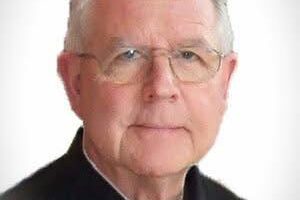
Rev. Justin TAYLOR s.m., R.I.P.
18 février 2026
Il y a quelques jours nous apprenions le départ pour le Ciel de notre cher P. Justin Taylor, mariste, qui vécut en tout plus de vingt ans avec nous à l’École Biblique et Archéologique Française de Jérusalem et fut le premier directeur du Comité éditorial de La Bible En Ses Traditions. Néo-zélandais, formé à l’Université […]
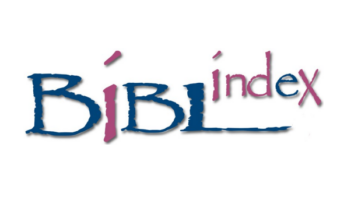
Nouvelles passerelles entre BiblIndex et la Bible en ses traditions
9 février 2026
Le projet BiblIndex est un index des citations et allusions bibliques dans la littérature patristique de l’Antiquité et du Moyen Âge. Il s’inscrit de longue date dans un travail commun avec la Bible en ses traditions, appelé à s’amplifier. Une nouvelle étape de cette collaboration est désormais visible pour les utilisateurs : un bouton intégré […]
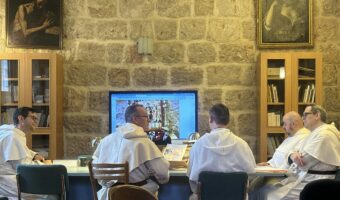
Séminaire « les intraduisibles des trois monothéismes »
21 janvier 2026
Le Comité Éditorial met en forme son partenariat avec le Séminaire des intraduisibles des trois monothéismes à l’Institut du monde arabe. Autour de Barbara Cassin, de l’Académie française, Simon Icard, David Lemler, Michael Nafi et d’autres collaborateurs, ce projet explore des lemmes propres aux traditions religieuses : des mots enracinés dans une langue, jamais définitivement […]
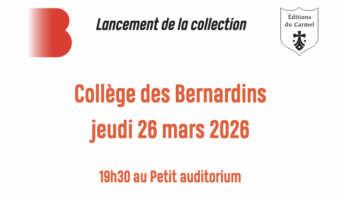
Lancement de la collection « Bible et mystique » — le jeudi, 26 mars 2026
21 janvier 2026
Dans le projet La Bible en ses Traditions, nous avons une zone d’annotation « Mystique ». Ces notes relèvent de la spiritualité, et ne puisent ni dans les traités théologiques formels (relevant des notes de *Théologie), ni dans les commentaires scripturaires du texte en question (lesquels relèvent de l’annotation en *Tradition chrétienne). » (La Bible en ses Traditions. Commencements. Définitions suivies de douze […]

« Le parfum caché de la Bible » présenté par le frère Olivier-Thomas sur RCF
18 janvier 2026
Le frère Olivier-Thomas Venard raconte l’aventure du parfum du Cantique des cantiques au micro de RCF.

Le frère Olivier Catel au sujet de BibleArt sur RCF
24 décembre 2025
Notre application a été présentée par le frère Olivier Catel, o.p. sur RCF le 9 décembre. Vous pouvez l’entendre à partir de 2’40 ici :
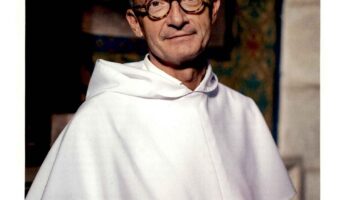
Entretien du frère Olivier-Thomas pour « Prier »
24 décembre 2025
La sortie du livre du frère Olivier-Thomas Venard, Il nous reste la foi chez Grasset, a attiré l’attention de plusieurs journalistes depuis sa sortie. Voici son entretien pour le magazine « Prier » du mois de décembre.
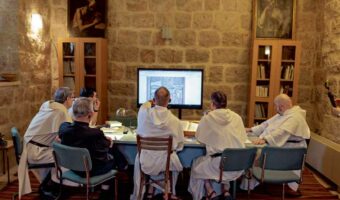
Le reportage de Famille chrétienne sur La Bible en ses Traditions et sur BibleArt
24 décembre 2025
Samuel Pruvot était venu accompagné du photographe Kobi Wolf en octobre. Son reportage dans Famille chrétienne est sorti ce mois-ci, vous le trouverez ici.
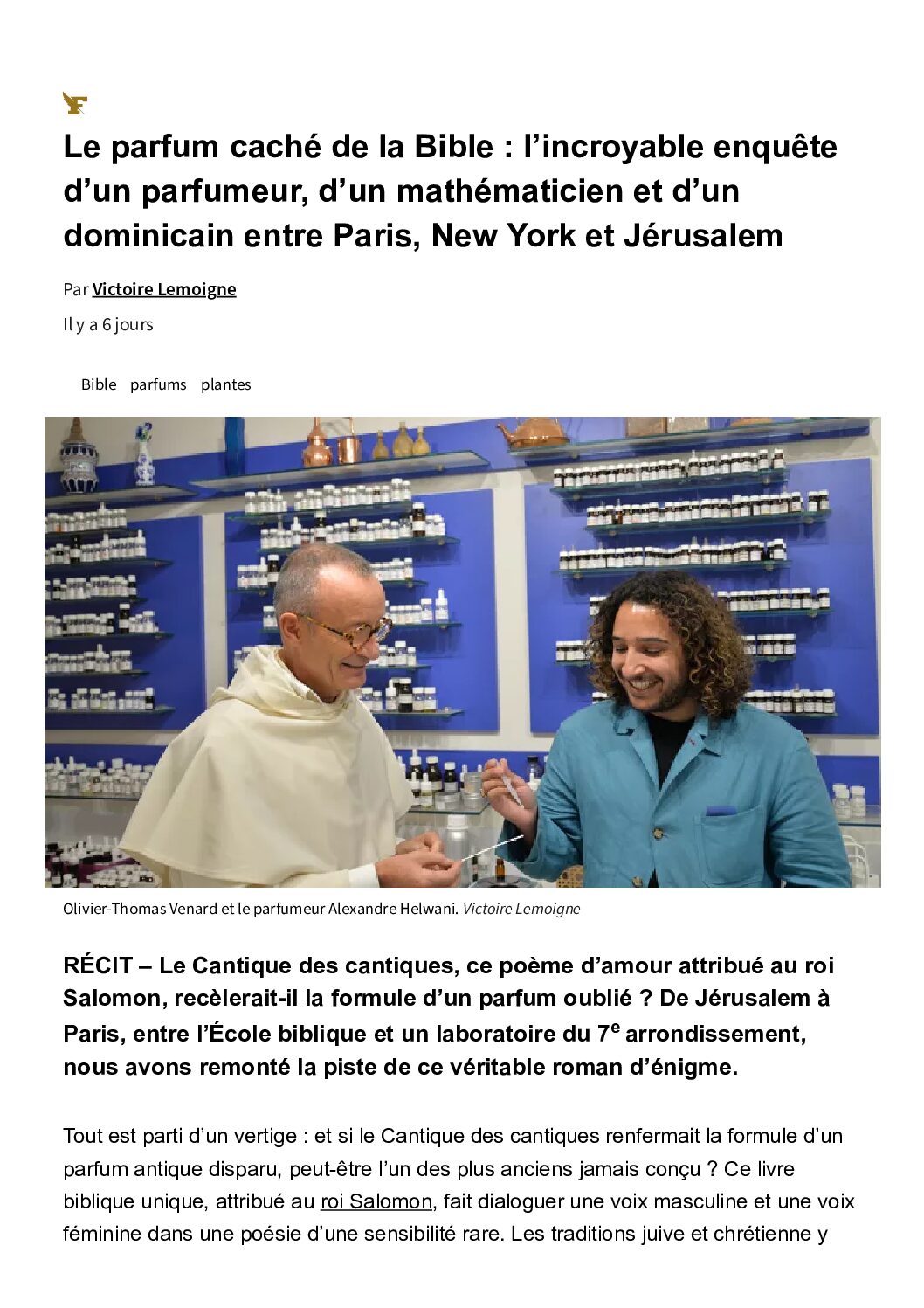
Le parfum inspiré du Cantique des cantiques est dans le Figaro
22 décembre 2025
Le Figaro a consacré un article au parfum du Cantique des cantiques dont nous vous avions déjà parlé ici. Depuis que Alexandre Helwani a mis au point ce parfum, les médias se relayent pour en parler. Une première production est déjà épuisée mais une seconde a été préparée pour les fêtes de fin d’année. Vous […]
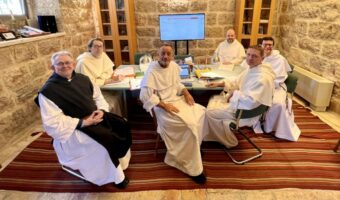
1. Le Comité éditorial et ses membres
19 novembre 2025
Le Comité éditorial de La Bible en ses Traditions a retrouvé son rythme hebdomadaire. Chaque vendredi, les discussions reprennent : affiner les choix de traduction, préciser les principes éditoriaux, suivre l’avancée des volumes et des collaborations. À ces tâches s’ajoutent les décisions stratégiques pour les nouvelles orientations et le développement numérique dans une dynamique à […]
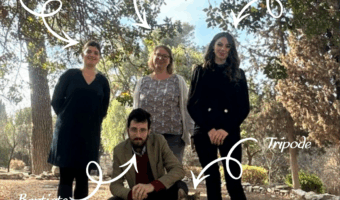
2. Dans le « bureau d’en face »
19 novembre 2025
Au cœur du chantier scientifique de La Bible en ses Traditions, sœur Marie-Reine, que vous connaissez bien, a accueilli les assistants dans son bureau. Elle y poursuit la rédaction de notes — surtout archéologiques, ces derniers temps. Autour d’elle, chacun apporte ses compétences et, en mettant du cœur à l’ouvrage, contribue à la recherche, à […]

3. Chez nos collaborateurs
19 novembre 2025
Derrière le vaste chantier de La Bible en ses Traditions se tient une équipe de collaborateurs passionnés : chercheurs, enseignants, éditeurs, spécialistes du texte et de ses traditions. Notre cathédrale biblique nécessite un travail collectif où se mêlent exégèse, analyse philologique, interprétation historique, connaissance des traditions juives et chrétiennes ou encore de l’histoire des arts. […]

4. Chez nos amis artistes, quand s’unissent l’art et la science
19 novembre 2025
Le parfum du Cantique des cantiques arrive pour Noël ! L’aventure de notre édition botanique du Cantique des cantiques, réalisée par Olivier-Thomas Venard et sœur Marie-Reine Fournier, continue. Grâce au partenariat avec Laurent Derobert et les artistes de la Galerie Hus à Paris, ainsi que les éditions des Murmurations, le projet qui avait retenu l’attention […]

5. Bienvenue aux journalistes !
19 novembre 2025
Le projet La Bible en ses Traditions suscite des échos dans les médias, qui participent au rayonnement de nos travaux savants au-delà des milieux académiques. Depuis la rentrée, parmi nos visiteurs journalistes, tous plus sympathiques les uns que les autres, nous avons reçu : Cette présence médiatique accrue se déploie également sur les réseaux sociaux, […]
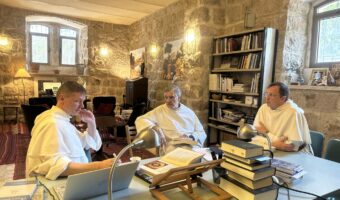
Visite de travail des frères Pablo Sicouly, o.p., et Pavel Syssoyev, o.p.
17 novembre 2025
Le frère Pablo Sicouly, o.p., vicaire du Maître de l’Ordre et socius pour la vie intellectuelle, et le frère Pavel Syssoyev, o.p., socius pour l’Europe, se sont rendus au couvent Saint-Étienne pour une visite fraternelle. Il s’agissait de la première visite officielle du frère Pavel à Jérusalem dans cette nouvelle fonction. Cette rencontre a permis […]
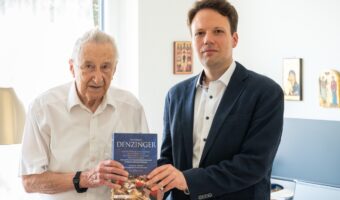
Avis au collaborateurs théologiens : Le « Denzinger » est bien vivant !
23 octobre 2025
La rubrique « Théologie » dans l’annotation de La Bible en ses Traditions se concentre sur les usages de l’Écriture dans le Magistère et chez les « grands théologiens ». La vigilance de frère Marc Leroy, notre secrétaire-archiviste, porte à notre attention la nouvelle suivante, qui la concerne directement : Michael Seewald a succédé à […]

Un regard sur nos activités – Photos de Kobi Wolf
20 octobre 2025
Lors de son passage chez nous, dans le cadre d’un reportage réalisé pour Famille Chrétienne, le photographe Kobi Wolf a su capter des instants simples et précieux de nos activités et de notre quotidien. Certaines de ses photos sont visibles sur son compte Instagram @kobiwolf. Voir cette publication sur Instagram Une publication partagée par Kobi […]

Bâtisseur de cathédrale biblique : Frère Olivier Catel, o.p.
17 octobre 2025
Au cœur de la construction de notre cathédrale biblique, il y a des artisans passionnés… Frère Olivier Catel o.p. , membre du comité éditorial BibleArt, pour moi …Après des années de travail au comité de La Bible en ses traditions, Bibleart est l’aboutissement d’un rêve porté en commun: rendre l’Écriture, dans ses versions et ses […]

Les projets partenaires
7 octobre 2025
Du côté de Biblindex Le séminaire reprend Alice Leflaëc et Laurence Mellerin communiquent : la première séance de séminaire à proprement parler aura lieu le 31 octobre. Les séances ont lieu en bimodal, en présentiel au 22 rue Sala et en visio via ce lien : https://cnrs.zoom.us/j/99701628112?pwd=NUZxaSt3Z29MU2t2YWtNdVM3L0krZz09 En voici le programme préliminaire : Contacts : alice.leflaec@orange.fr / laurence.mellerin@mom.fr Le […]

Nos collaborateurs publient
6 octobre 2025
Universitaires ou artistes, ils nous partagent leurs dernières trouvailles. Les philologues : en direct des études perses appliquées à la Bible Dr Gad Barnea est prolifique en articles savants, publiés dans les meilleures revues et disponibles en open access. MERCI à lui de nous les faire connaître et pour mémoire, ses autres publications en cours […]

1. La vendange de l’année
30 août 2025
Cette année encore, notre plateforme s’est enrichie de manière spectaculaire, portée par le travail patient et collectif de nos contributeurs. Publications numériques Plusieurs centaines de nouvelles notes multimédias ont été créées : critique textuelle, arts contemporains, musique, histoire de l’art… Nous avons dépassé les 5 000 notes multimédia en ligne, sans compter les dizaines de […]
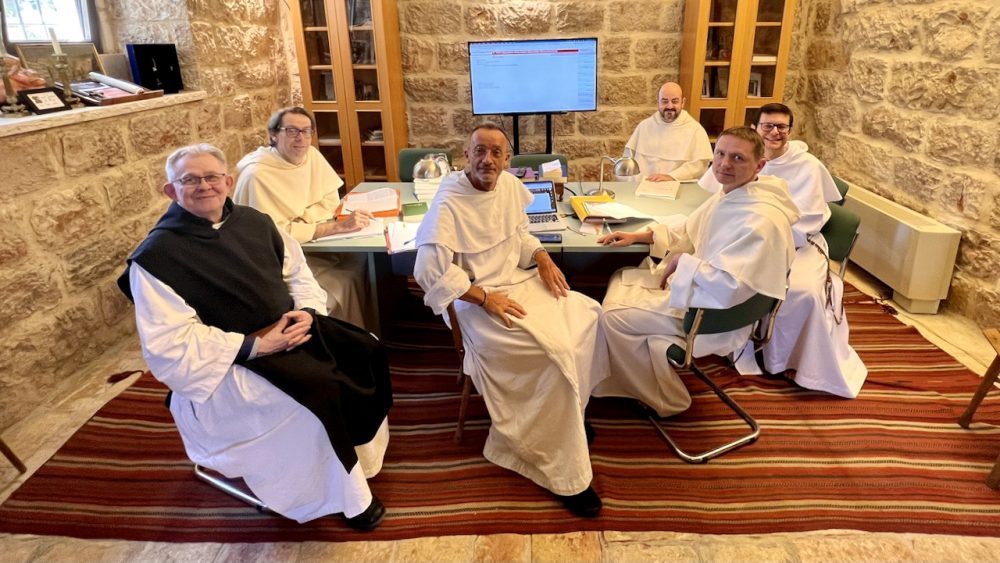
2. Les ouvriers à la Vigne
30 août 2025
Frères et sœurs dominicains, ou membres d’autres ordres, chercheurs, assistants, universitaires et experts internationaux ont continué à œuvrer ensemble, semaine après semaine, dans l’ombre comme dans la lumière, pour bâtir notre Bible annotée fidèle à ses traditions et ouverte aux cultures. Le comité éditorial Issu du Conseil académique de l’EBAF, le comité dirigé par fr. […]

3. Renforts et ornements
30 août 2025
Aux vignerons individuels que sont nos collaboratrices et nos collaborateurs se joignent des programmes ou des institutions amies, pour nous aider à construire notre cathédrale biblique Partenariats scientifiques Barbara Cassin, de l’Académie française, a relancé notre collaboration au sein de son programme « Les intraduisibles des trois monothéismes ». Déjà associé à ce programme à ses débuts, […]

4. Développement numérique
30 août 2025
Le déploiement numérique du programme s’est poursuivi cette année avec rigueur et ambition. La réussite majeure de l’année Ce fut la mise en production complète de notre plateforme collaborative scribe.bibletraditions.org, désormais pleinement opérationnelle en mode « live » : chaque élément validé y est automatiquement synchronisé avec les différentes interfaces de lecture (scroll, portail, BibleArt), garantissant une […]
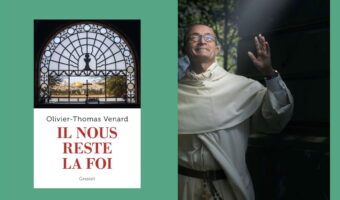
Forte présence médiatique à l’occasion du témoignage de notre directeur
30 août 2025
Ce printemps 2025, plusieurs médias ont voulu faire écho au témoignage sur la vie du cœur et de l’intelligence en Terre sainte aujourd’hui, commandé par les éditions Grasset à Olivier-Thomas Venard, et mis au jour le 2 avril. Nos interfaces de consultation ont alors connu de petits pics de fréquentation… Merci aux amis journalistes de […]
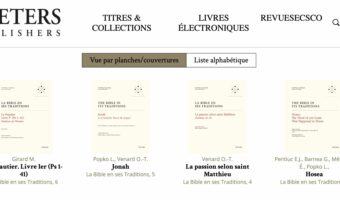
Deux nouveaux volumes dans notre collection chez Peeters !
25 juillet 2025
Tout récemment est sorti, avec le sous-titre de Bonheur de l’homme, le livre 1 du Psautier monumental que notre ami le professeur Marc Girard est en train de préparer, depuis de longues années, pour La Bible en ses Traditions. Fruit de toute une vie de recherche de la science et de la sagesse, ce psautier […]

D’anciens étudiants de l’École biblique publient
9 juin 2025
Pierre de Curraize : « Jérémie, un paradigme pour Paul ? » Il y a … dix ans, Pierre suivait notre séminaire conjoint avec Serge Ruzer à l’Université hébraïque. Il a récemment publié sa thèse : Jérémie, un paradigme pour Paul ? Étude de l’emploi de textes jérémiens dans la rhétorique de quelques péricopes des […]
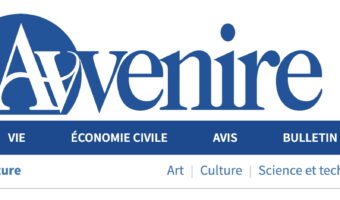
Un article de frère Łukasz Popko sur BibleArt dans l’Avvenire
7 juin 2025
Le 7 février 2025, à l’occasion de la sortie de son livre avec Fr Timothy Raddcliffe, le frère directeur de notre comité éditorial a présenté avec brio l’essentiel de notre projet dans le grand journal italien :
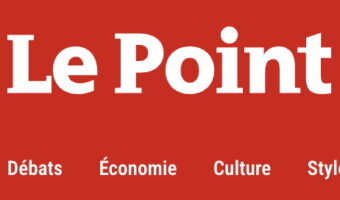
Un article enthousiaste du Point sur BibleArt
7 juin 2025
Merci à Jérôme Cordelier pour ce bel article

Rendez-vous « évangélique » à Luxembourg les 13-14 mars
2 mars 2025
Dans le cadre des festivités liées au septième centenaire du Docteur angélique, et d’une visite des reliques du saint dans le Grand-Duché, nous coorganisons avec la Luxembourg School of Religion and Society deux journées de colloque sur Thomas d’Aquin comme figure de renouveau évangélique. Après le colloque de Barcelone l’an passé, ce sera une occasion […]

BibleArt citée parmi les « must » du Carême
1 mars 2025
Merci aux amis de La Croix de faire connaître votre appli biblique préférée, (ainsi que notre petite-fillote devenue grande Prixm) tout est dit dans leur dernière phrase pour présenter BibleArt : « Une gigantesque cathédrale de pixels dans laquelle on n’a qu’une envie : se perdre »* *cf. Matthieu 16,25 Dieu.com : numéro offert ! À l’orée du […]
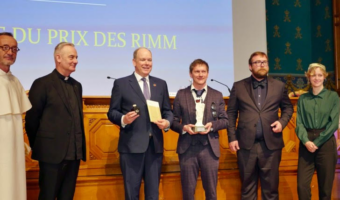
Une aide de la Principauté de Monaco
12 février 2025
Nous sommes heureux de remercier ici la Direction des Affaires Culturelles du Gouvernement princier, à travers la Société pour la Gestion des Droits d’Auteurs (SOGEDA), pour son soutien à notre entreprise d’édition botanique des Écritures. En 2025, elle contribue ainsi au financement de la recherche biblico-botanique et de la création artistique de notre Sœur Marie-Reine […]

Appel à candidatures : AMI en Philologie (Grammaire, Lettres classiques, Études sémitiques) pour 2025-2026
28 janvier 2025
Aide à la Mobilité Internationale en Lettres à Jérusalem — Scholarship in Jerusalem

Appel à candidatures : AMI en Littérature (française | francophone) pour 2025-2026
28 janvier 2025
Aide à la Mobilité Internationale en Lettres à Jérusalem — Scholarship in Jerusalem

Appel à candidatures : AMI en Histoire de l’art, pour 2025-2026
28 janvier 2025
Aide à la Mobilité Internationale en histoire de l'art à Jérusalem — scholarship in art history in Jerusalem

Appel à candidatures : Community Manager pour 2025-2026
28 janvier 2025
Aide à la Mobilité Internationale en Lettres à Jérusalem — Scholarship in Jerusalem : Community Manager

Action de grâce pour la vie du bureau à Jérusalem
4 janvier 2025
nouvelles des activités de la BEST à l'automne hiver 2024

Des messagers de bonnes nouvelles nous rendent visite
28 décembre 2024
soutiens à la Bible en ses traditions en visite à Jérusalem
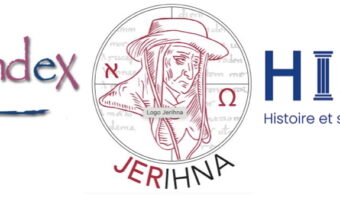
Collaborations scientifiques
28 décembre 2024
Nouvelles collaborations scientifiques inter-institutionnelles entre La Bible en ses Traditions et d'autres programmes de recherche
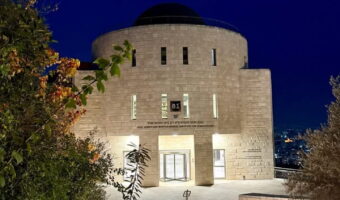
Lancement du « Jerusalem Consortium for New Testament Studies »
21 décembre 2024
Le 3 décembre au soir, une assemblée fournie d’environ 80 personnes se pressait dans une belle salle du bâtiment Mandel, à l’université hébraïque de Jérusalem, pour participer au lancement du « Jerusalem Consortium for New Testament Studies ». En ces temps de violences multi-azimut en Terre sainte, comment ne pas se réjouir que des bonnes […]

Picasso : racines bibliques
25 novembre 2024
Favorisée par le P. Christian Venard, une rencontre entre fr. Olivier-Thomas, directeur de notre programme et Monsieur Bernard Ruiz-Picasso a permis de poser les fondations d’une collaboration entre la Bible en ses Traditions / BibleArt et la Fondation Almine & Bernard Ruiz-Picasso. En effet, le petit-fils de Pablo organise pour l’automne prochain ou le printemps […]

« Les Quatre Évangiles | Traduction de la Vetus syra », lancés au Collège des Bernardins le 14 novembre dernier
15 novembre 2024
lancement de l'évangéliaire vieux-syriaque au collège des Bernardins

Bible, théologie & culture : « Les 7 péchés capitaux »
9 novembre 2024
Fr. Olivier Catel, de notre Comité éditorial, au festival d’Ein Kerem Le mercredi 23 octobre, le frère Olivier Catel est intervenu lors du Festival d’Ein Kerem à Jérusalem. Étienne Lepicard, directeur de « Beth Ha-Gat », et l’association MAROM, qui a pour mission le dialogue judéo-chrétien en Israël, ont organisé une représentation des Sept péchés capitaux, […]

Reconnaissance et espérance
2 août 2024
Reconnaissance MERCI à vous, d’abord, pour votre soutien qui a permis, enfin, le « lancement » de nos nouvelles interfaces BibleArt, pour consulter notre base de données depuis vos mobiles ou vos ordinateurs fixes (et bravo à nos développeurs numériques !) : MERCI à ceux qui nous ont quittés ces derniers mois, pour tout ce […]
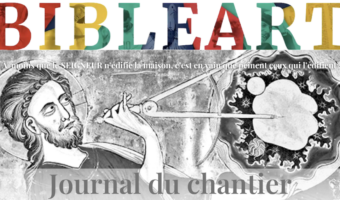
« Journal de chantier » : des nouvelles mensuelles
2 août 2024
En plus de la présente lettre bisannuelle d’informations sur le développement général de La Bible en ses Traditions, pour accompagner le lancement de BibleArt, nous enverrons une fois par mois des nouvelles concernant les enrichissements et améliorations de notre bible en ligne, en dialogue constant avec ses utilisateurs, sous forme d’un « journal de chantier […]

Chez nos amis
10 décembre 2022
À l’institut des Sources Chrétiennes, Une magnifique journée d’étude sur les Noms hébreux de Jérôme s’est tenue le 19 novembre à Lyon. Laurence Mellerin reconduit le séminaire sur la réception de l’Ecclésiaste, dont voici le programme : Pour mémoire , BIBLINDEX, index scripturaire en ligne des Pères de l’Église, c’est un site et un carnet […]

Événements de décembre chez nos amis et collaborateurs
11 décembre 2023
nouvelles universitaires

« L’École Biblique de Jérusalem au présent et au futur » à Paris le 21 octobre
22 septembre 2023
Rendez-vous à Paris le 21 octobre avec le présent et le futur de l'Ecole biblique et archéologique française
















































